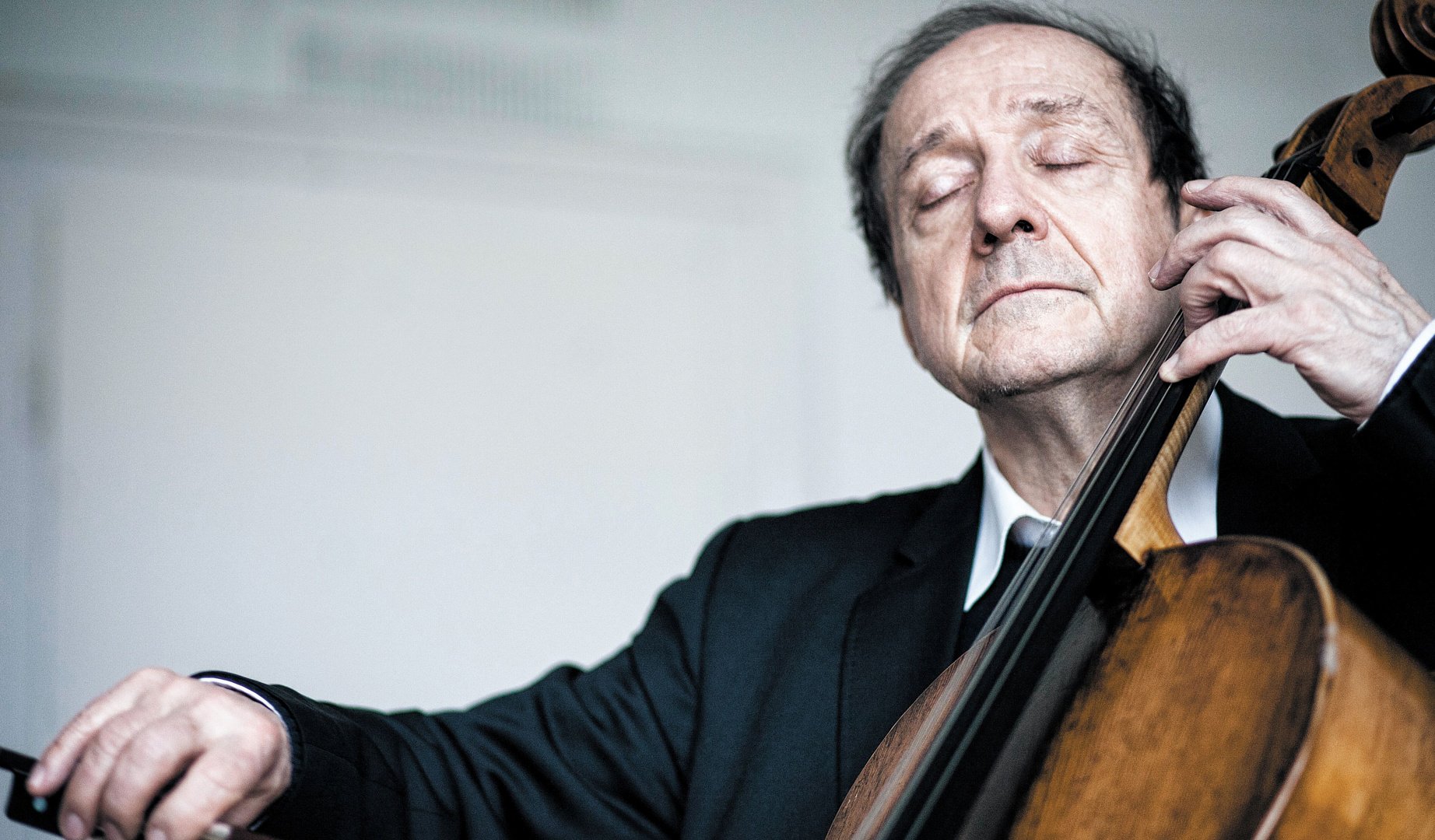
Program
György Ligeti (→ bio):
With Pipes, Drums, Fiddles – on poems by Sándor Weöres, for mezzosoprano and 4 percussionists – 1. Fable, 2. Dance Song, 3. Chinese temple, 4. Coolie, 5. Dream (Twelfth Symphony), 6. Bitter-sweet (67th Hungarian etude), 7.Parakeet
The poems are available here.
Concerto for Cello and Orchestra
INTERVAL
György Ligeti (→ bio):
Poème symphonique
Concert Românesc
San Francisco Polyphony
Featuring
Other information
The event is about 2.5 hours long.
About the event
In 2023, the Festival Orchestra pays homage to György Ligeti, born a hundred years ago, with a grand concert. One of the most significant composers of the post-World War II half century, Ligeti bequeathed to us an extraordinarily colorful œuvre. He was interested in all periods of musical history, was attracted by literature, and, ever since his youth, he was tied up with mathematics. All this infiltrated into his works, always revealing layers for research that are often beyond music. Ligeti left Hungary in 1956 and got to know the greatest figures of avant-garde art in Cologne. Soon he, too, was one of them. His selected works are conducted by the founding member of the Kossuth Prize laureate Amadinda Percussion Group, Zoltán Rácz.
The concert begins with Ligeti’s last completed work called With Pipes, Drums, Fiddles; the piece takes its title from a well-known children’s song. In the seven movements for mezzo-soprano, four percussionists, and a number of other instruments, Ligeti sets to music the poetry of Sándor Weöres. The piece plays with the musicality and rhythm of the words.
This will not be the first time that one of the greatest cellists of our time, Miklós Perényi, has performed Ligeti’s Cello Concerto with the BFO. Composed in 1966, the work is not a typical concerto; it is actually a piece based on the cello yet being in continuous motion as regards orchestration. The two movements, opposite in character, are related by their structure. The first movement slowly unfolds from an eightfold piano; and the concerto culminates in a swirl of various types of motion.
Of all Ligeti’s works, it is probably Poème symphonique that triggered the strongest emotions; a television channel refused to broadcast it in 1963. Set for one hundred metronomes, ten performers to start them ticking, and a conductor to manage the whole process, the “symphonic poem” first sounds like a noisy clicking of metronomes, yet those listening more carefully can hear the emergence of intriguing rhythm patterns.
Ligeti was open-minded to folk music as well, collecting folk songs himself, but in his “Romanian Concerto” from 1951 he uses his own, original, folk song-like melodies, just like Bartók did. The four movements, played attacca, recall the composer’s childhood memories, his first encounter with the sound of the alpenhorn among them.
San Francisco Polyphony was composed for the 60th anniversary of the San Francisco Symphony Orchestra. The piece, scored for an enlarged ensemble, begins with a cloud depicted with sound patches, then slowly develops. Tunes, sometimes emerging, sometimes blending, frequently travel among the instruments, producing compelling modulations of timbre.
Did you know? The first performance of Síppal, dobbal, nádihegedűvel (With pipes, drums and reed violin) was on 10 November 2000 in Metz (with the Amadinda Percussion Group and Katalin Károlyi), the Cello Concerto’s premiere was on 19 April 1967 in Berlin (soloist: Siegfried Palm, conductor: Henryk Czyż), the Poème symphonique was premiered on 13 September 1963 in Hilversum, conducted by the composer, the Concert românesc from 1951 was first performed on 21 August 1971 in Fish Creek, Wisconsin (conducted by Thor Johnson), and the San Francisco Polyphony on 8 January 1975 in San Francisco (conducted by Ozava Seiji). The Festival Orchestra last performed the Cello Concerto on 9 March 2020 (soloist: Miklós Perényi, conductor: Zoltán Rácz), the Concert Românesc on 24 January 2010 (conductor: Sylvain Cambreling), and the other works for the first time.
Contemporary events On 11 May 2000, the Tate Modern museum was opened in London / in December 2000, Unit IV of the Chernobyl nuclear power plant was permanently shut down / French philosopher Jacques Derrida published his work Grammatology in 1967 / The Joke, a novel by Czech writer Milan Kundera, was published in 1967 / on 28 August 1963, American civil rights campaigner Martin Luther King gave his famous speech entitled I Have a Dream... / American artist Roy Lichtenstein painted his diptych Whaam! in 1963 / on 17 November 1951, Heitor Villa-Lobos's Fantasia for saxophone, three horns and strings was premiered in Rio de Janeiro / American author with German-Jewish descent Hannah Arendt’s book, The Origins of Totalitarianism, was published in 1951 / Margaret Thatcher became leader of the British Conservative Party in 1975 / in 1975, the French philosopher Michel Foucault published Discipline and Punish: The Birth of the Prison